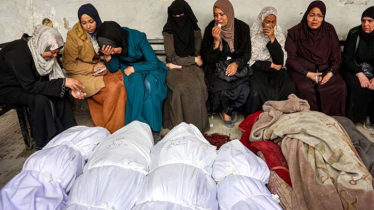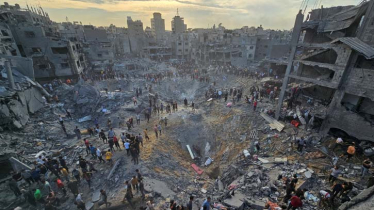
Photo: Collected
Nearly two-thirds of the buildings in the Gaza Strip have been damaged or destroyed since the Gaza war began in October, the United Nations said Friday (2 August) .
"UNOSAT's latest damage building assessment, based on satellite imagery reveals that 151,265 structures have been affected in the Gaza Strip," the UN Satellite Centre said.
"Of these, 30 percent were destroyed, 12 percent severely damaged, 36 percent moderately damaged, and 20 percent possibly damaged, representing approximately 63 percent of the total structures in the region."
The assessment was based on comparing imagery from May 2023 onward with images from July 6 this year.
"The impact on civilian infrastructure is evident, with thousands of homes and essential facilities being damaged," the agency said.
The October 7 Hamas attack on southern Israel that started the war resulteted in the deaths of 1,197 people, mostly civilians, according to an AFP tally based on official Israeli figures.
Militants also seized 251 hostages, 111 of whom are still held captive in Gaza, including 39 the military says are dead.
Israel's retaliatory campaign against Hamas has killed at least 39,480 people in Gaza, according to the Hamas-run territory's health ministry, which does not give details of civilian and militant deaths.
UNOSAT said the total debris in the Gaza Strip generated by the conflict amounts to approximately 41.95 million metric tonnes.
The figure is up 83 percent from the nearly 23 million tonnes estimated on January 7.
The conflict has resulted in 14 times more debris than the combined total from all previous conflicts in the Palestinian territory since 2008, UNOSAT said.
The agency estimated that 114 kilogrammes (250 pounds) of debris were generated for each square metre in the Gaza Strip.
Geneva-based UNOSAT says its satellite imagery-based analysis helps the humanitarian community assess the extent of conflict-related damage and helps shape emergency relief efforts.
Messenger/Sourov








